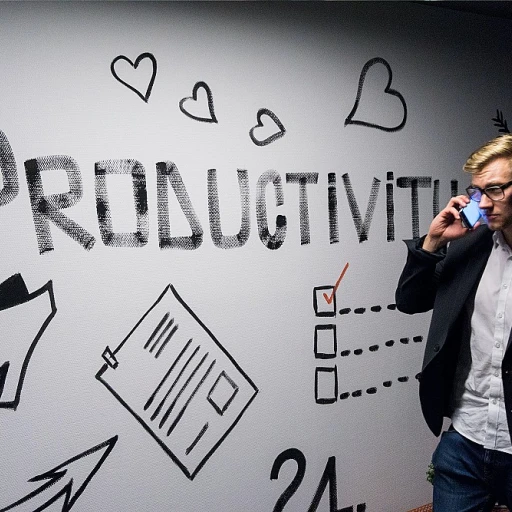
Understanding Motivational Interviewing
The Foundation of Motivational Interviewing
Motivational interviewing is a transformative approach that enhances leadership development by fostering a collaborative and empathetic environment. This technique revolves around guiding individuals through open questions and reflective listening, empowering them to explore their own motivations and find the confidence and ability to change. By leveraging this methodology, leaders can better understand the nuances in people’s behaviors and discover effective pathways to foster positive change within their teams.
At the heart of motivational interviewing lies the skillful use of open questions. These questions help create a space where the client or person feels heard and validated. For example, instead of asking closed questions that typically elicit a yes or no response, open-ended questions encourage more elaborate and insightful dialogue. This approach not only helps individuals articulate their thoughts but also facilitates a deeper understanding of the situation.
Incorporating motivational interviewing within leadership development requires a commitment to active listening. When leaders genuinely listen, they can build a rapport with their team members, encouraging a sense of safety and trust. This is critical in establishing a supportive environment where people feel comfortable expressing their challenges and aspirations without fear of judgment. By demonstrating empathy and understanding, leaders can inspire confidence in their team’s capacity for growth and transformation.
Ultimately, this interviewing technique serves as a bridge to overcome resistance and ambivalence, which are common obstacles in the change process. It provides leaders with a toolkit to navigate challenging situations more effectively and promote a culture of continuous improvement. Embracing motivational interviewing as a key component of leadership development not only enhances personal growth but also drives collective success by fostering a culture where people are motivated to excel.
Crafting Effective Questions
Formulating Questions That Inspire Change
Crafting effective questions is a cornerstone of motivational interviewing. The right questions can help a person explore their thoughts and feelings, ultimately fostering a positive change. Open questions are particularly powerful in this approach, as they encourage clients to share more about their situation and feelings, rather than providing simple yes or no answers.
Open questions help build a deeper understanding of the client's perspective. For example, instead of asking, "Do you want to improve your leadership skills?" consider asking, "What aspects of your leadership would you like to develop further?" This type of question invites the person to reflect and articulate their goals, which can enhance their confidence in their ability to change.
Listening is crucial when using open questions. It’s not just about asking the right questions but also about being attentive to the responses. Listening well helps you understand the nuances of the situation and the client's feelings, which is essential for building empathy and rapport. This approach can make people feel heard and valued, which is vital in leadership development.
Here are some examples of good open questions that can be used in motivational interviewing:
- "What changes are you hoping to see in your leadership style?"
- "How do you feel about your current leadership challenges?"
- "What steps do you think you can take to achieve your leadership goals?"
These questions help people find clarity and motivation to pursue positive change. They also provide insights into the client's confidence and ability to change, which can guide the development of tailored strategies for leadership growth.
For more insights on unlocking leadership potential, consider exploring resources like the Maxwell Leadership Bible, which offers valuable perspectives on leadership development.
Building Empathy and Rapport
Creating Meaningful Communication Bridges
Building empathy and rapport is an essential component of effective leadership, particularly when utilizing motivational interviewing techniques. Empathy allows leaders to connect with their team members on a deeper level, fostering an environment where individuals feel valued and understood. Achieving this level of communication requires a conscious effort to listen actively and engage with authenticity.
One of the key aspects of building empathy is the art of active listening. This means truly focusing on the person speaking, rather than planning your response while they talk. For instance, using open questions can help you understand the speaker's perspective and gain valuable insight into their feelings and motivations. Questions like "How do you feel about this change?" or "What can I do to support your ability to change?" are good examples that encourage open dialogue.
Reflection is another powerful tool in building rapport. By paraphrasing or reflecting back what someone has said, you not only confirm their message but also demonstrate that you value their contributions. For example, saying "It sounds like you're concerned about the impact this may have on your ability to succeed" can encourage individuals to express themselves more openly.
In the context of leadership development, empathy and rapport are not merely about being nice. These qualities establish trust, which is essential for inspiring confidence in others and motivating positive change. A well-built rapport can lead people to embrace change with enthusiasm, rather than resistance.
As leaders, when we focus on empathy-driven communication, we create a collaborative atmosphere where team members feel comfortable taking risks and expressing their ideas. This aligns with some principles discussed in exploring how the Boy Scouts of America program empowers young leaders through activities that foster relationship-building and trust. Building empathy and trust within your team can significantly enhance leadership potential.
Overcoming Resistance and Ambivalence
Addressing Resistance with Empathetic Approaches
Navigating the intricacies of leadership often involves dealing with individuals who are resistant to change. Understanding the dynamics of motivational interviewing can significantly help in addressing and overcoming this resistance. Open questions are a powerful tool in your leadership arsenal. They help the person feel listened to and understood. When you ask open questions, you encourage the individual to express themselves, offering insights into their feelings and resistance. This enables you to tailor your approach to their specific situation. For example, instead of saying, "You need to be more open to change," try asking, "What are some things that concern you about this change?" This question not only reveals their hesitations but also builds a platform for dialogue. Listening plays a pivotal role in this process. Attentive listening goes beyond hearing words; it involves understanding the context and emotions behind them. By reflecting on what your client says, you enhance their confidence in your ability to help facilitate positive change. For instance, a leader might reflect, "It sounds like you're feeling uncertain about how this change might affect your role." Such reflections help the individual feel empathized with and understood, which can shift the dynamic from confrontation to collaboration. Using examples and good communication practices, leaders can adopt empathetic approaches that don’t just focus on persuasion but understanding. This helps people find their own path toward change. It requires persistence, yet with the right skill set, you can empower your team to embrace transformation. Finally, it is crucial to remain patient and consistent in your approach—resistance and ambivalence are natural stages in the process of change. By fostering a supportive environment where individuals feel safe to explore their feelings and uncertainties, you facilitate their journey to positive change. Such a well-planned approach can significantly enhance the ability of people to change positively, benefitting both the client and the overall goals of the organization.Practical Applications in Leadership
Implementing Motivational Interviewing in Leadership Practices
Utilizing motivational interviewing within leadership requires a strategic application of the techniques discussed earlier, including crafting effective questions and building empathy. Leaders who embrace these methods often find themselves better equipped to inspire positive change, tackle resistance, and foster a culture of development.- Encouraging Change: By employing open questions, leaders can encourage team members to express their thoughts and feelings about an issue freely. This can help people find their motivation to change, leading to more effective outcomes.
- Enhancing Communication: Implementing open questions and active listening allows for a deeper understanding of the client or team member's viewpoint. Good example questions might be: "What are some things you feel confident about in your role?" or "How do you see this change impacting our goals?" These invite reflection and open dialogue.
- Building Trust and Confidence: As discussed in building empathy, showing genuine interest in the person and their situation fosters trust. People are more likely to engage in positive change when they feel understood and valued by their leaders.
- Managing Resistance: Applying a non-confrontational approach helps in dealing with resistance and ambivalence. Instead of directly challenging a team member's reluctance, leaders can use reflection. Phrases like, "It sounds like you're feeling unsure about the new process. Let's explore this further," can transform resistance into a cooperative problem-solving opportunity.
- Real-World Examples: Implementing motivational interviewing can lead to significant improvement in team dynamics. For instance, leaders who regularly use these techniques often report better team morale and a higher level of cooperation. It’s about creating an environment where open discussion is welcomed, and feelings of apprehension are met with positive reinforcement rather than criticism.
Resources and Tools
Empowering Through Strategic Resources
To maximize the impact of motivational interviewing in leadership, accessing the right resources and tools is essential. These elements can transform your ability to employ effective questioning, build rapport, and inspire change.
Here are some practical resources and tools that can help deepen your understanding and application of motivational interviewing techniques in leadership:
- Books and Literature: Invest in well-regarded books on motivational interviewing to enhance your comprehension of the approach. Authored by experts, these resources often provide real-world examples and strategies that are valuable in various situations.
- Workshops and Training: Engaging in workshops that offer hands-on experience can greatly improve your skills. Interaction with experienced trainers can build your confidence and hone your ability to ask the right questions, fostering a positive change in your leadership approach.
- Online Courses: Many platforms offer online courses focusing on motivational interviewing. These courses are an excellent way to learn at your own pace and explore videos, quizzes, and other interactive materials.
- Peer Groups and Networks: Joining a network of professionals who are also focused on leadership development can provide community support and shared learning experiences. These groups can be a source of new ideas and different perspectives on handling resistance and ambivalence.
- Case Studies: Reviewing case studies where motivational interviewing was successfully applied in leadership scenarios can offer insights into effective implementation. Real-life examples provide a glimpse into what has worked well in other contexts.
- Reflective Practice Journals: Keeping a journal of your experiences with motivational interviewing techniques can be incredibly insightful. It allows you to reflect on what strategies were effective and areas where you need to develop further.
By leveraging these resources, you can not only develop a deeper understanding but also enhance your leadership skills and facilitate positive change among your team or organization. Remember, the key is to remain open and willing to adapt; resources are there to aid you in building a robust leadership approach that empowers others and fosters growth.













